Navigating the Performance & Well-Being Paradox Amid Rapid Change
In recent years, issues related to employee stress, burnout, well-being, and mental health have taken the spotlight. The question arises: Why have these concerns become more prevalent in recent times? The answer lies in the pandemic, which pushed many individuals beyond their tolerance limits.
Three key observations:
- Few companies adjusted performance targets or increased staffing to support employees facing challenges.
- Gallup’s 2023 study1 revealed that people are stressed at work, not necessarily about work.
- Investments in reducing stress and promoting well-being often fail to correlate with improved performance.
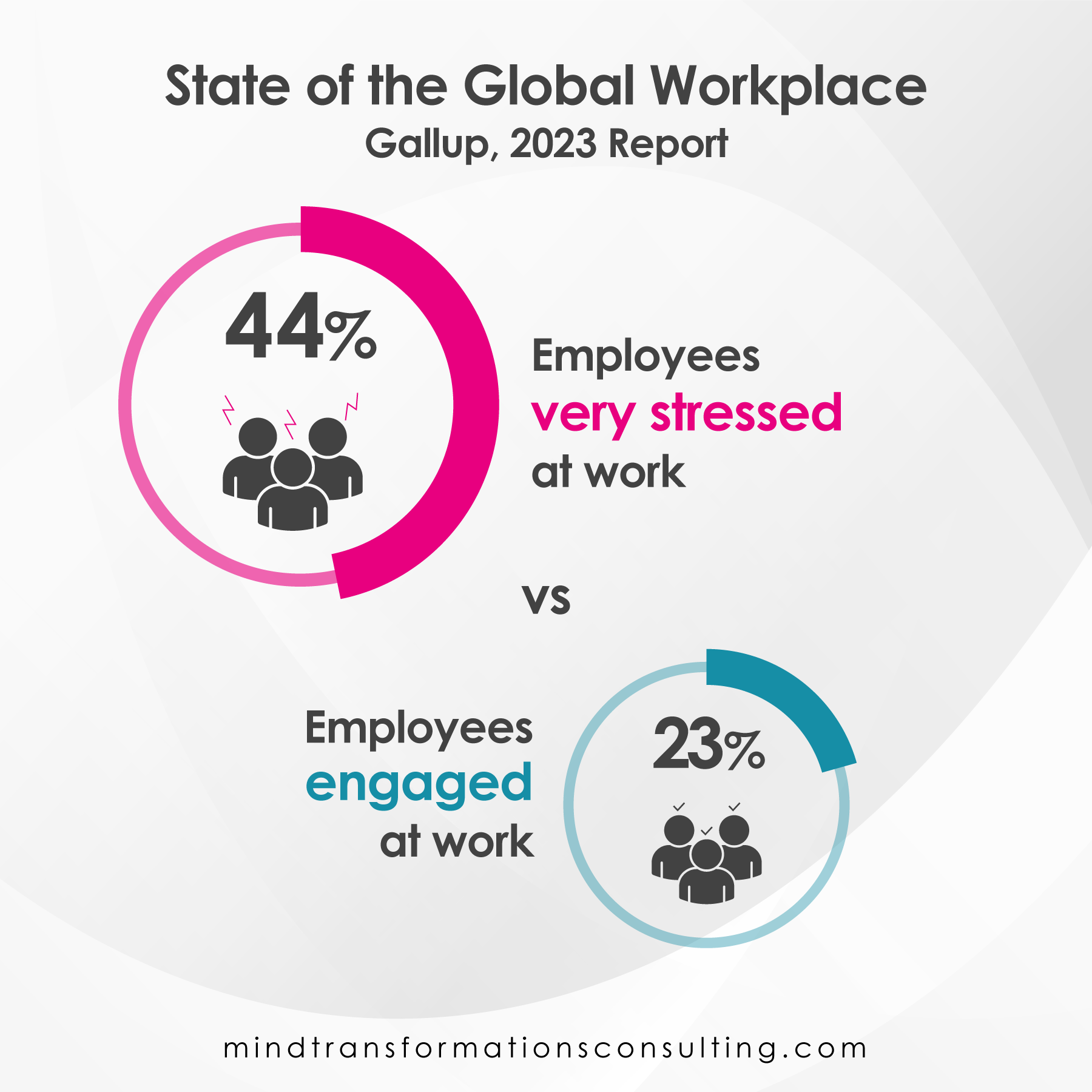
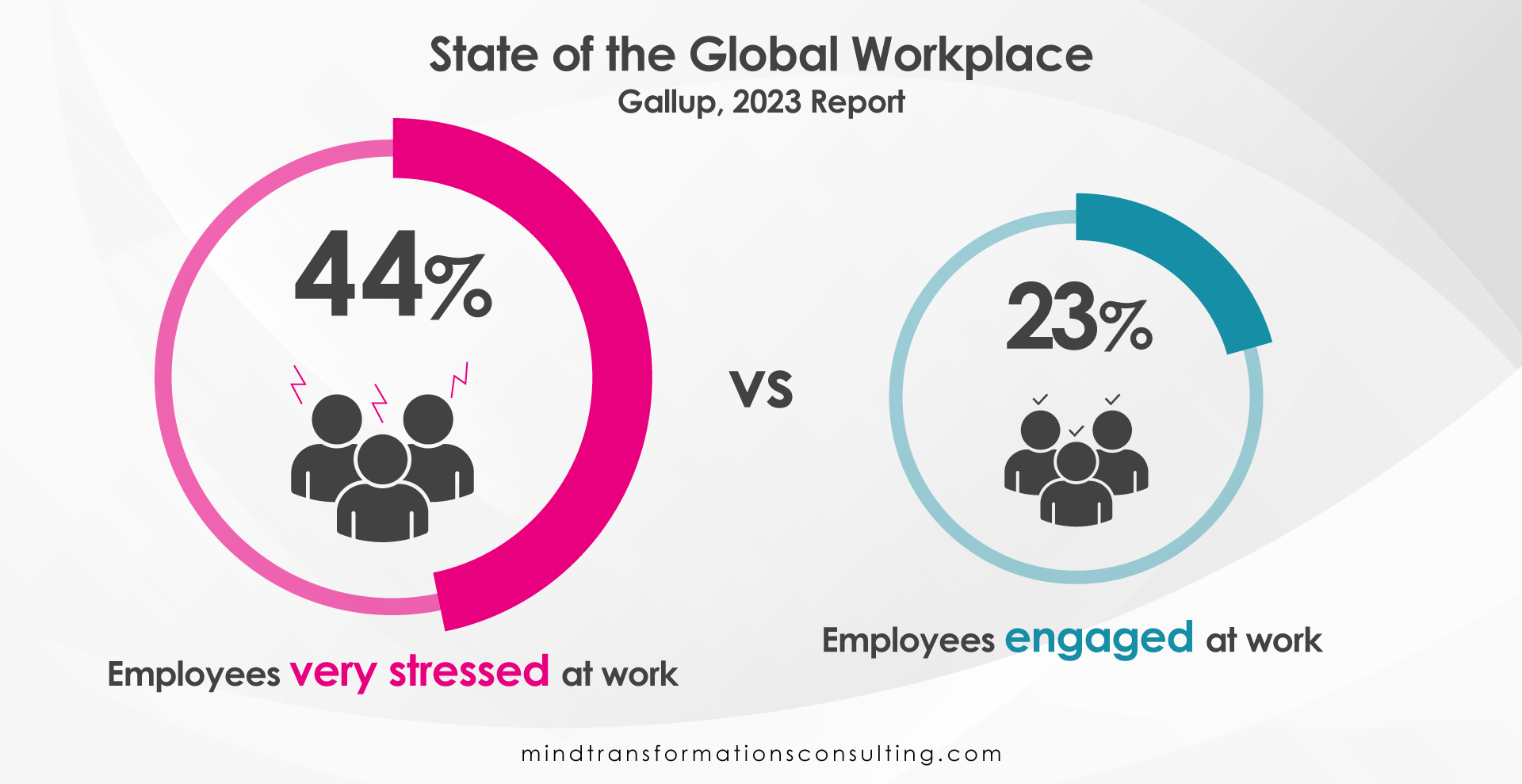
If we believe that people are the most critical assets in elevating company performance, then we have a paradox that we shouldn’t ignore: The Performance and Well-Being paradox.
This paradox can neither be solved by continually hiring high-performing employees, nor by implementing run-of-the-mill training or feel-good wellness programmes.
Fisher’s Transition Curve no longer applies
Fisher’s Transition Curve, a model illustrating how individuals adapt to significant changes, isn’t entirely applicable in today’s rapidly changing world. Frequent and abrupt transitions leave people little time to recover before the next shock. This dynamic challenges the traditional linear recovery process.
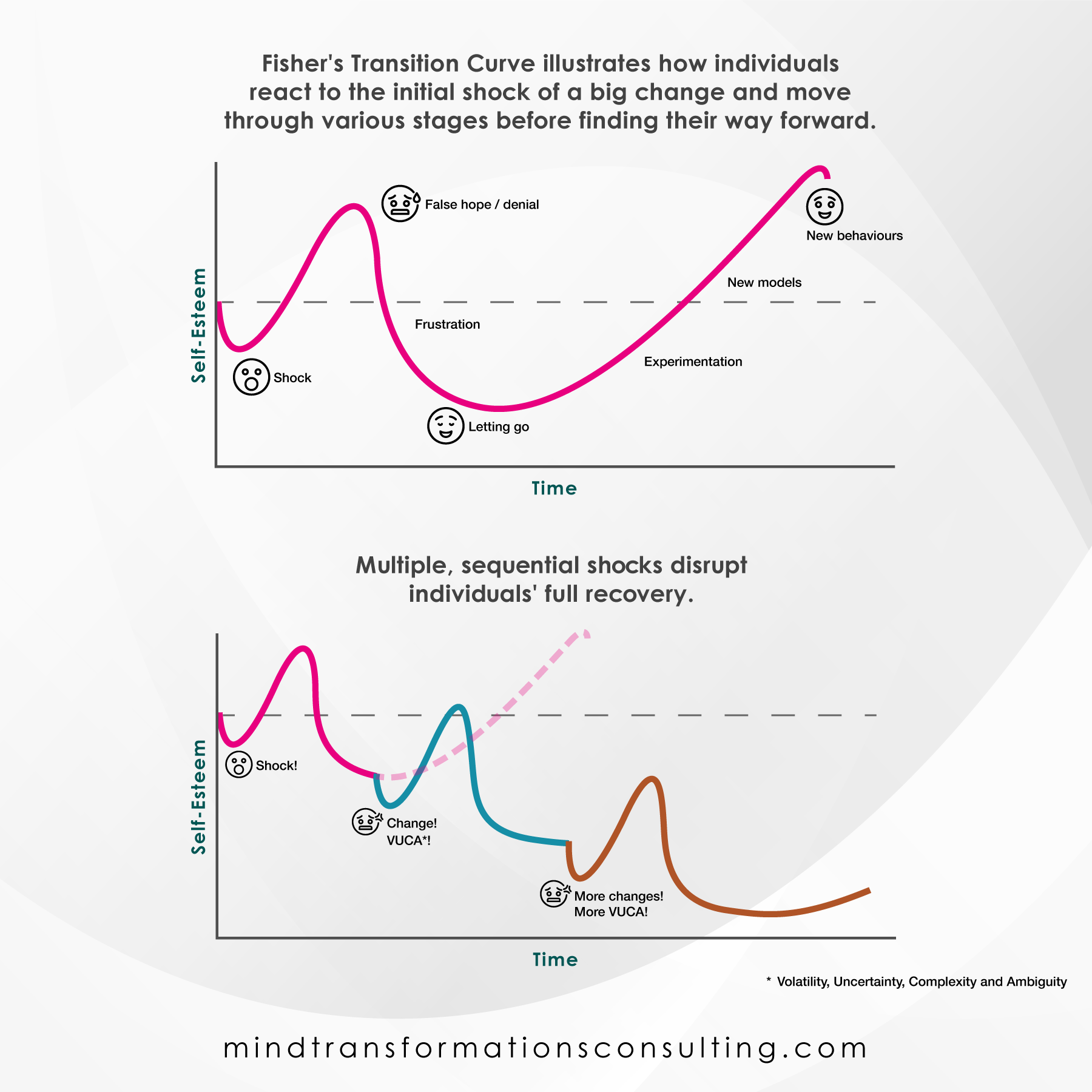

Three key questions emerge:
1. Is it a lack of resilience or insufficient opportunities for rejuvenation that hinder individuals?
2. Can we optimise rejuvenation in both work and personal lives to better cope with constant change?
3. Can we achieve performance targets without sacrificing rejuvenation?
Work-life balance is not a zero-sum game
Previously, work and personal life occurred at different locations, but lockdowns and remote work blurred this boundary and caused overwhelm. Many individuals now aim to restore this separation, sometimes at the cost of their jobs or through sabbaticals.
The traditional view of a zero-sum game between work and personal life must be re-evaluated post-pandemic.
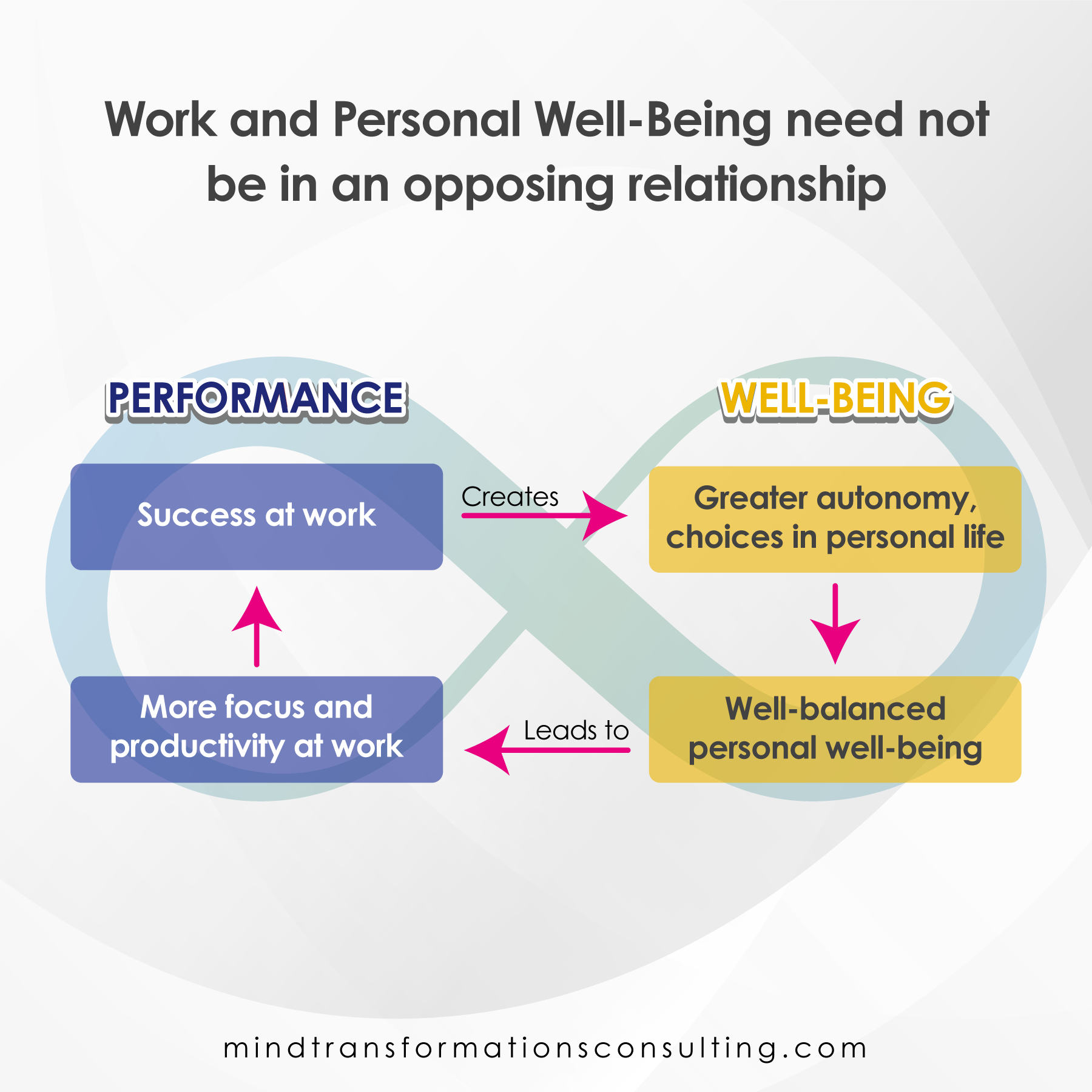
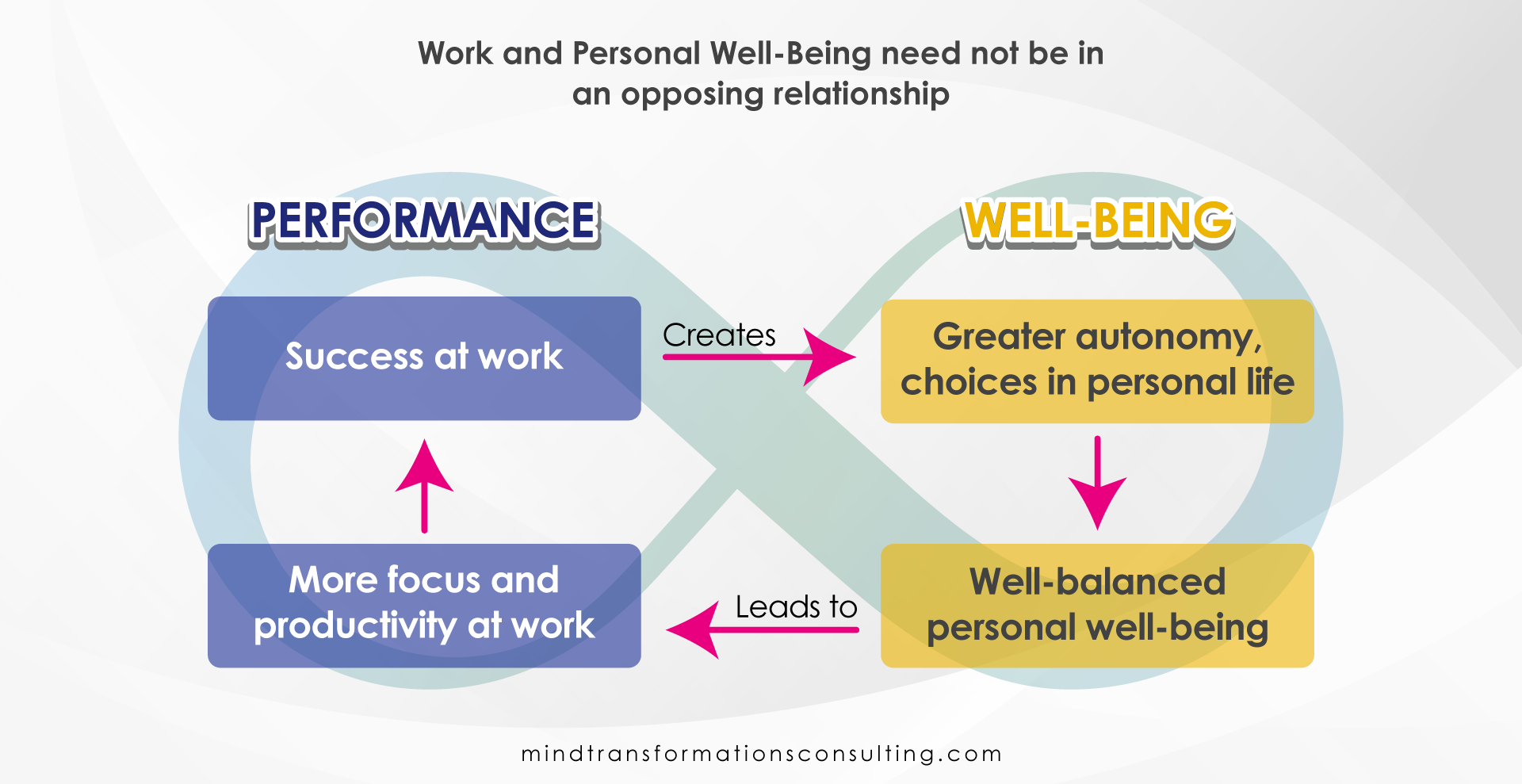
Work and personal well-being need not be mutually exclusive
Rather than a zero-sum game, they can complement each other. Success at work can lead to greater autonomy and choices in personal life, while personal well-being can enhance focus and productivity at work.
Leaders can make a difference by paying attention to the relationship between their people’s well-being and performance.
Three Leverage Points for Performance & Well-Being
Work and life, performance and well-being are opposing but complementary polarities that must coexist for our overall growth.
On the one hand, performance at work improves financial stability, self-esteem and a sense of security. On the other hand, well-being governs our physical, psychological and emotional health.
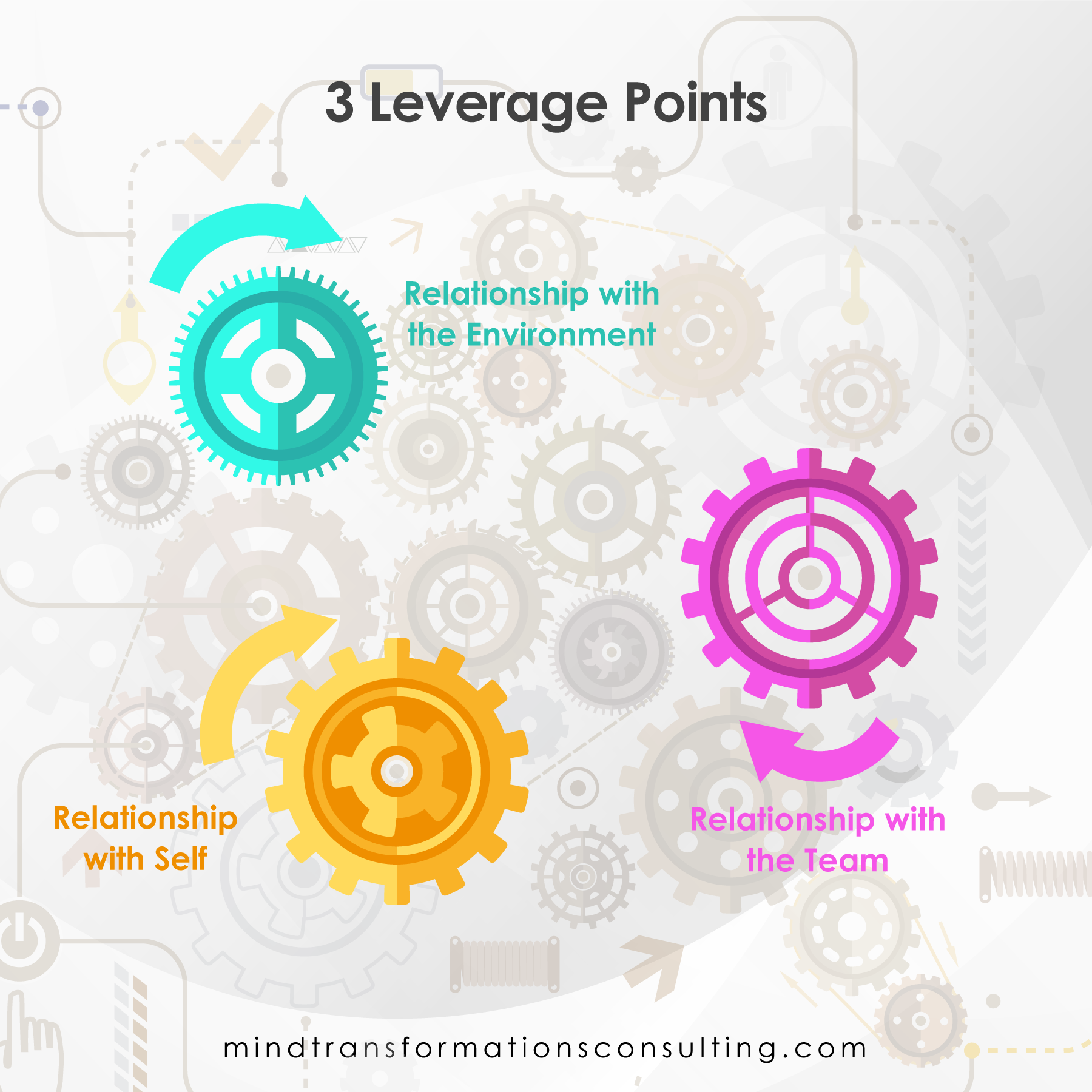
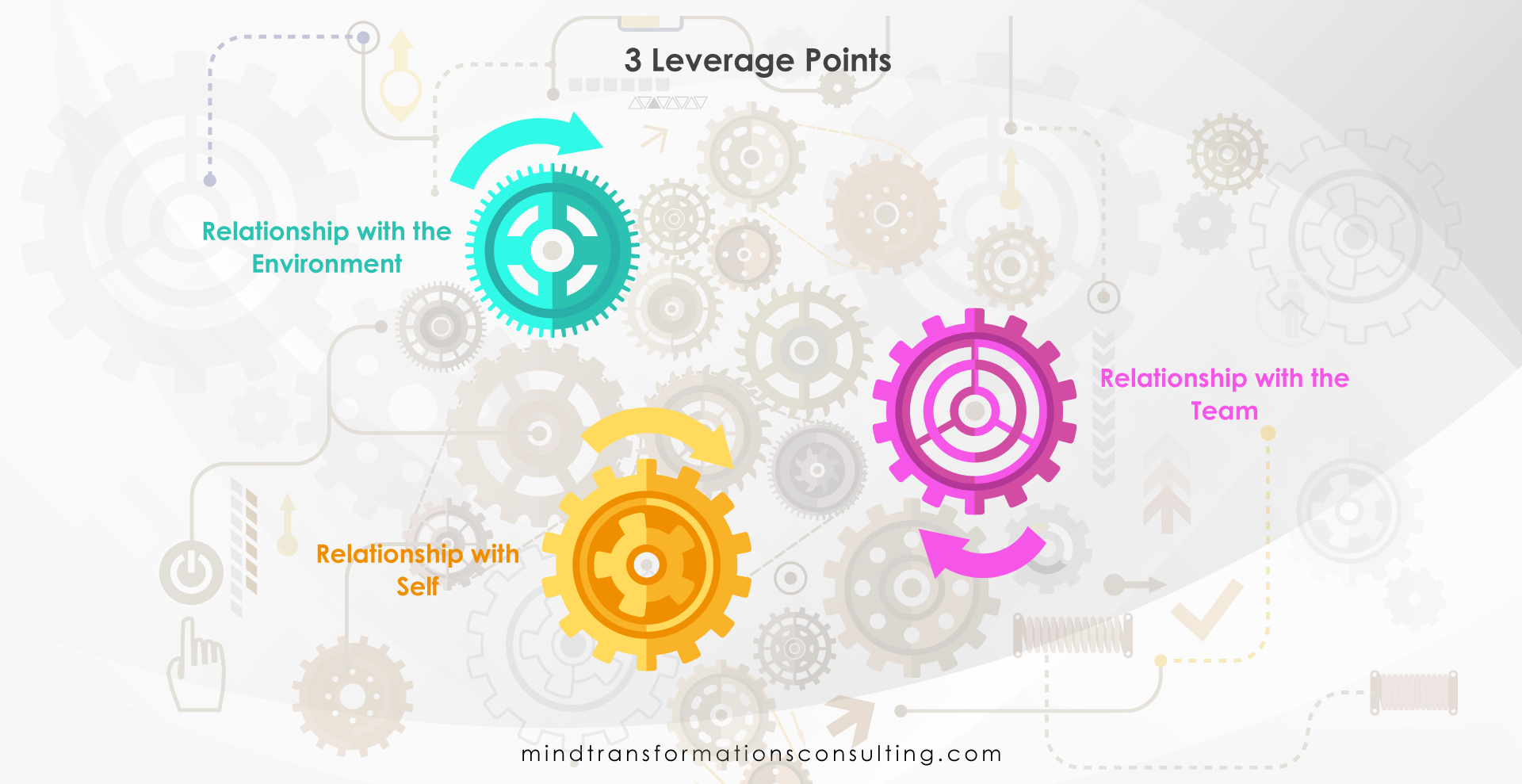
In our client work at Mind Transformations Consulting, we have found three leverage points that enable organisations and teams to drive performance and nurture well-being simultaneously – so people can deliver results consistently.
Relationship with self:
Understanding how individuals define success and self-care is crucial to defining better outcomes.
Relationship with the team:
As work and personal life intertwine, the dynamics among co-workers who face challenges together become essential. Building strong relationships within the team is key.
Relationship with the environment:
Enabling the team in adapting to the ever-changing external environment, embracing opportunities and riding the waves of change is crucial for better results.
By addressing these three leverage points, leaders and organisations can make strategic adjustments to enhance performance and well-being. Instead of viewing them as opposing forces, leaders can harness their coexistence for sustainable success.
Instead of trading off performance and well-being like adversaries in a zero-sum game, enlightened leaders and organisations can choose to leverage performance and well-being in a dynamic, graceful dance. This approach can lead to better outcomes for both employees and the business.
Contact us for a starter conversation: reach@mindtransformationsconsulting.com

Leave a message
REACH US
MIND TRANSFORMATIONS CONSULTING
✉️ reach@mindtransformationsconsulting.com
📞 (+65) +65 9323 2427
